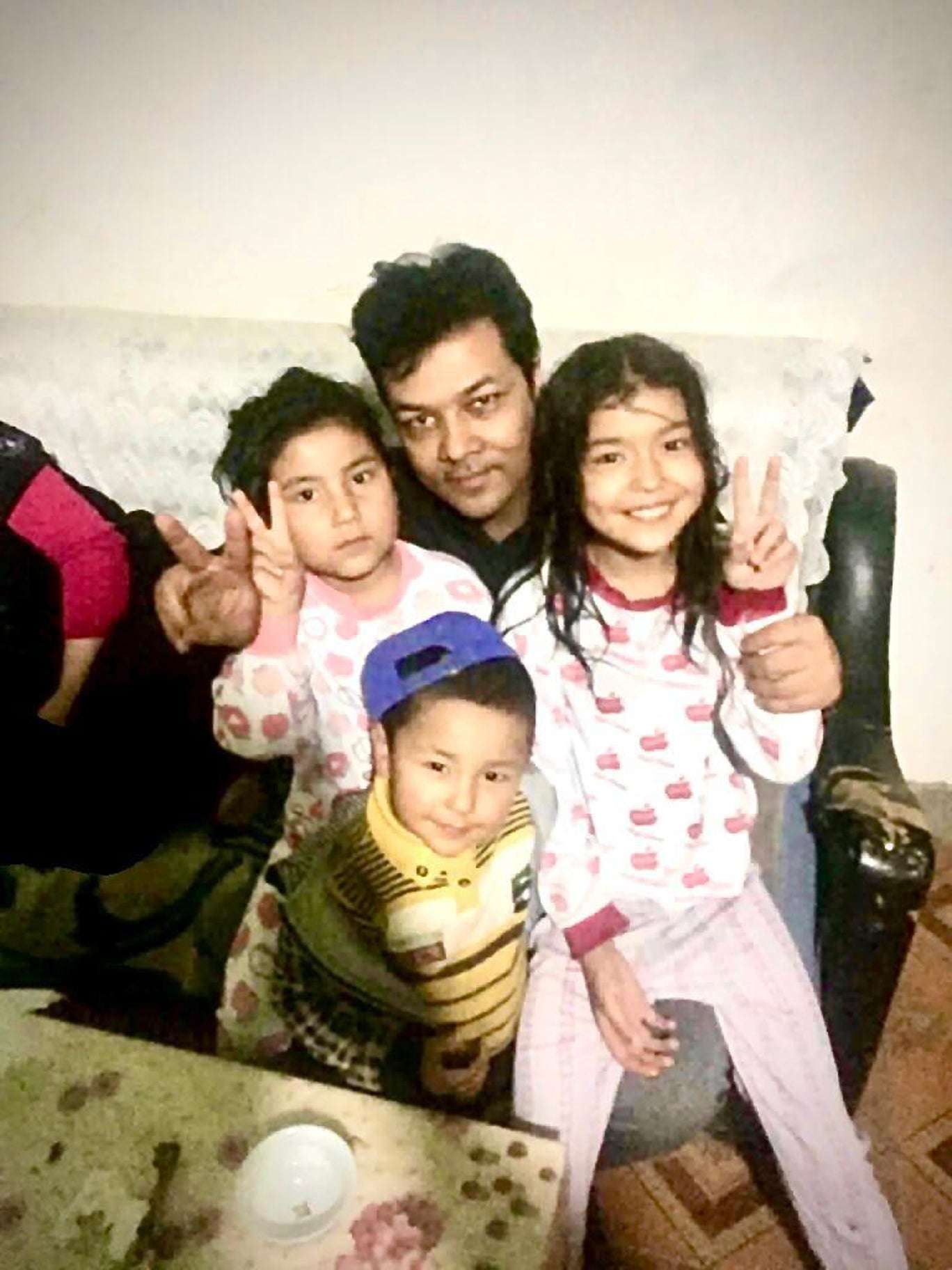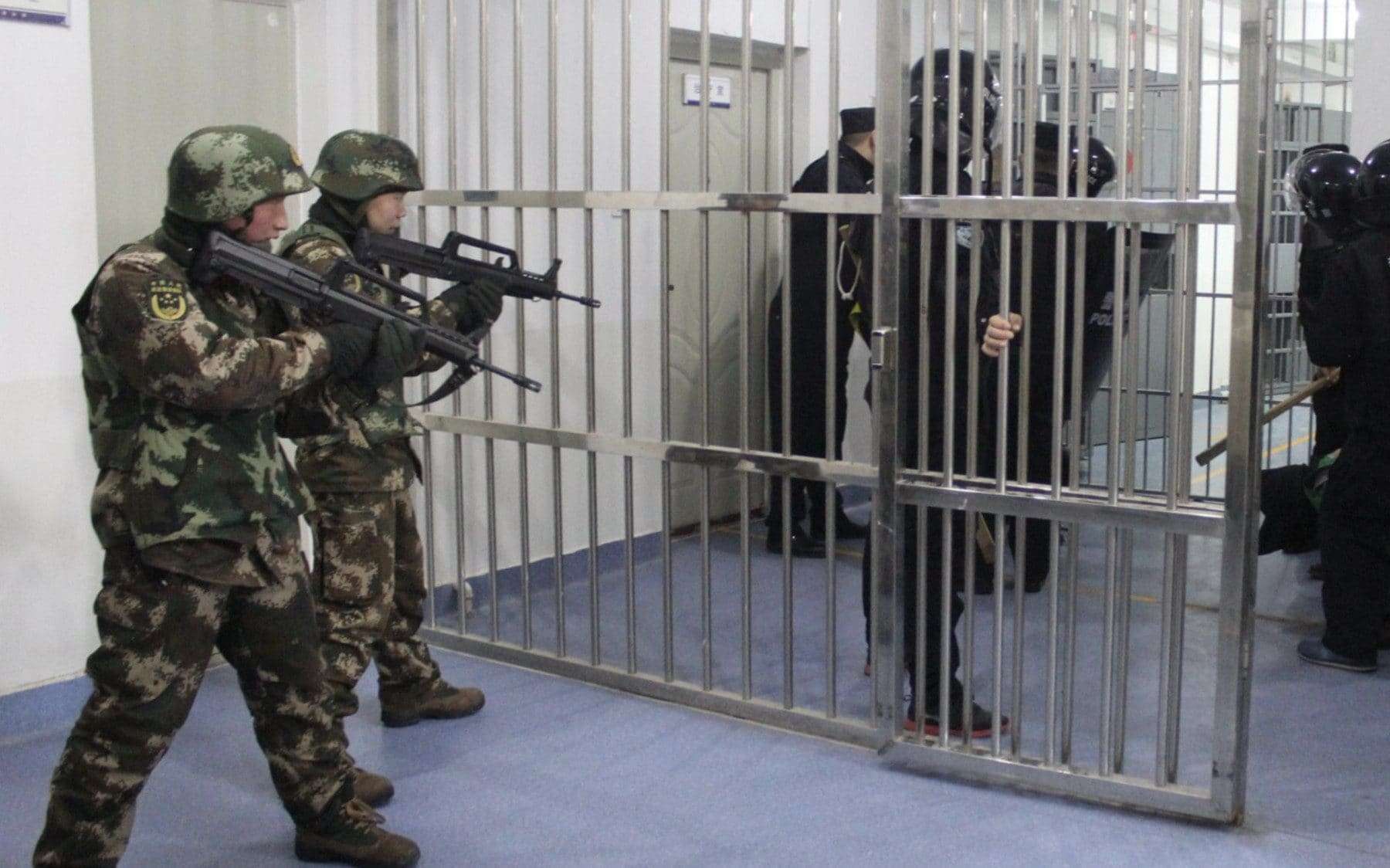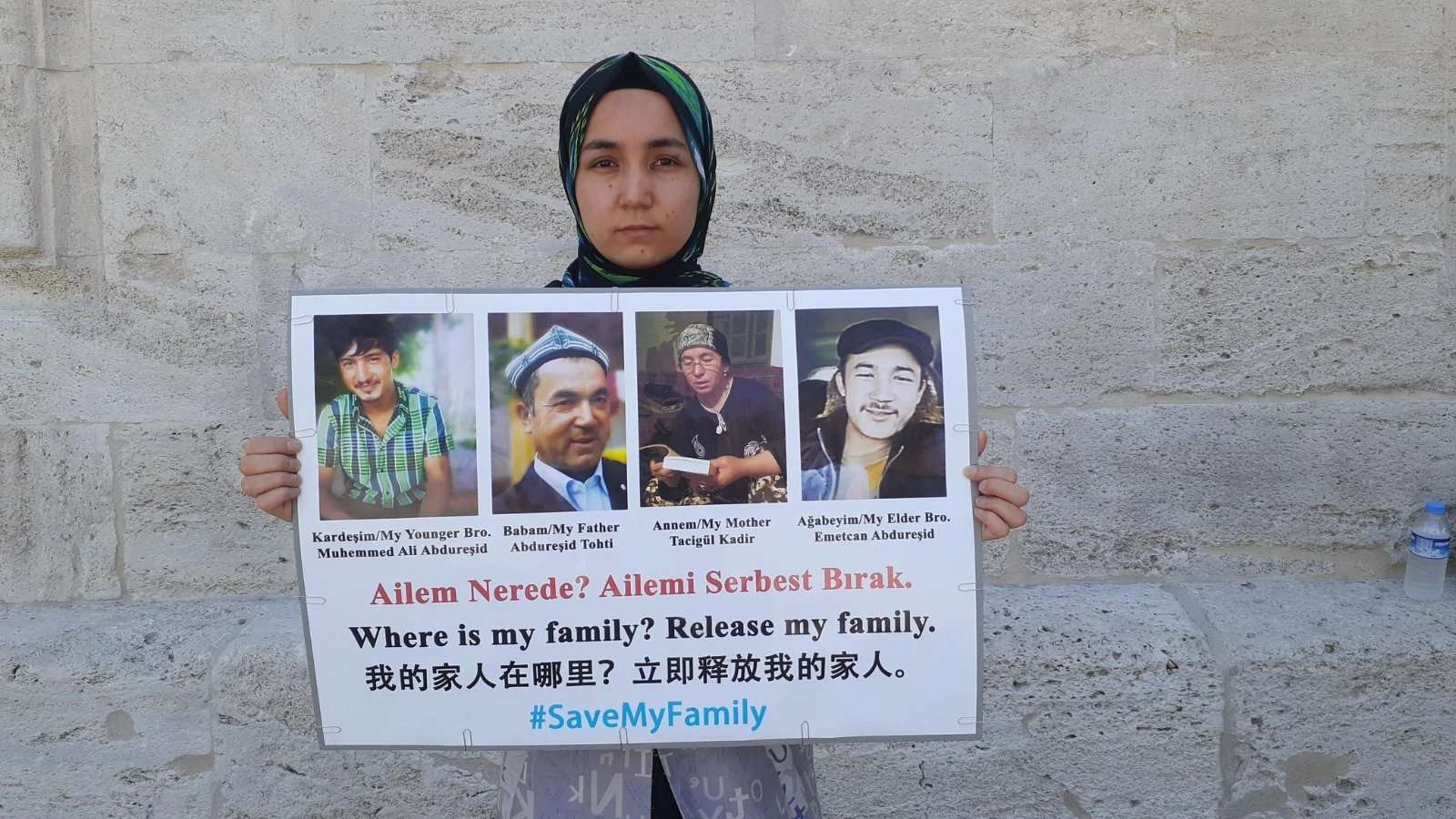The Save Uyghur Campaign would like to recognize BBC News for the release of The…
Adil Imin

Many a time we look for extraordinary stories of extraordinary people, expecting stories that can
move mountains – and we forget about the ordinary man. The man who was not academic but
loved sports at school, the man who had an unusual love for meat, the man who was not
politically active, the man who was not trying to change the world, the man who just wanted to
take care of his family. My brother Adil was just that. We were like most brothers growing up;
with only two years between us we were joint at the hip and wherever he was, I was. Our mother
passed away in 1989, and our father later re-married, gifting us a younger brother Tursun and
little sister Medinur. While I was shy and closed off, Adil was very sociable and popular at
school, and while I was very focused and academically driven, Adil preferred to focus on playing
soccer and decided not to go to college.
Although I was the oldest, Adil naturally took on the role as the older, stronger, and protective
brother to me. Throughout our life, he was vehemently against learning any CCP propaganda,
and would never obey the police. He had so much pride paired with a strong ego that I am certain
would not succumb to anyone or anything. He was strong-willed, tough, and too stubborn for his
own good. After our mother passed away, I wanted to pursue my Islamic studies seriously, so I
started studying at an underground madrassa and delved deep into studying the books of Bukhari
and Muslim, Islamic Jurisprudence, and Arabic grammar. Adil, on the other hand, decided to
study butcher-ship, started working, and later married at the young age of 19. He married twice
and had three children, Ekram, Elqanjan, and Subhinur. His children were the light of his eyes,
and all he ever wanted to do was protect and provide for them – as every father does. He was
strict with them, cultivating them to be strong-willed and smart children with bright futures
ahead of themselves. And his stern-ness, although perhaps too stern, worked in my favour as I
earned the title as their favourite uncle.
I’m not sure what has happened to them now. Perhaps they have been taken to concentration
camps, perhaps their organs have been harvested, or perhaps they have died out of extreme
hunger.
Adil was the famous Kebab shop owner in our town for two or three years until my father bought
him a bus as a gift and he started his own transportation company, making him an extremely
successful businessman in as little as five years. I, on the other hand, had been on the run from
the police from 1998 as I had started teaching Islam to students after completing my studies. The
local government had issued a statement stating all students from our underground madrassa
were to be arrested, including me. In an attempt to try and escape and stay hiding, I had changed
my name, which was previously Abdulaziz Imin, to my current name Tahir Imin. While I was
hiding from the police under my new name Tahir, Adil was building a name for himself in our
town and growing his family. However, despite our complete contrast in career paths and
personalities, we were both equally subjected to the brutality of the CCP. In late 2016, they
started to arrest Uyghur elites, intellectuals, scholars, and wealthy businessmen. One at a time we
were being hunted down and sentenced to prison without trial. Sentences as long as fifteen years
were being handed out, for reasons such as being too successful, or having Islamic knowledge.
My business advisors at the time strongly encouraged me to leave East Turkestan at least for a
few years, or I would be next. With only my wife and a few friends knowing, I made the decision
to travel to Israel in February of 2017, and narrowly escaped imprisonment.
My days in Israel were bittersweet; I had immersed myself in studying the Israeli and Palestinian
people, but I was far from my family. Despite thinking I was safe from the tyranny of the CCP,
they had threatened me multiple times to return back home, or they would collaborate with the
Israeli government to send me back. A mere six months later I moved to Washington DC where
there was a small Uyghur community. I established myself well, started my own Uyghur led
media initiatives, and started to speak out about China’s oppression of our people. I had enough
and I wanted the world to hear our story, and feel our pain. But I was to find out later, that my
activism came at the expense of my family’s safety.
I lost all communication with my family from August 2017, and do not know the whereabouts
of any of them. In 2019, a family friend from Kashgar was in Turkey and informed me that his
brother had been thrown in the same prison as Adil. Adil had been sentenced to 10 years in
prison, due to having a relationship with foreign enemies – me. I found out my step-mother had
been sentenced to 10 years for the same reason as Adil. I was forced to divorce my wife, and
have no contact with my daughter Shehrebano Tahir.
I miss my daughter very much.
It’s been three and a half years since I have seen her.
Every day I think of her, and I worry about her safety and health.
We grew up in the far South of East Turkestan in a close-knit community. We were surrounded
by family, and our childhood was filled with memories of frequent gatherings at my
Grandfathers house. Once a month after the dawn prayer, all the women in our family would
wait for us to return from the mosque. We’d be welcomed home with a table spread of traditional
Uyghur dishes, the sweet aromas filling the street, warming the house against the cold morning
breeze. Occasionally we would bring home the Masjid Qari’ (reciter of the Qur’an), and spend
our hours in tilaawat (recitation of the Qur’an) until the sun rose. These memories seem almost
like a lie, as now the CCP has taken away everything I could have ever known about family – my
step-mother, my wife, my daughter, and my brother Adil.
And now I am left alone in the US bearing the burden of telling the world about them.


